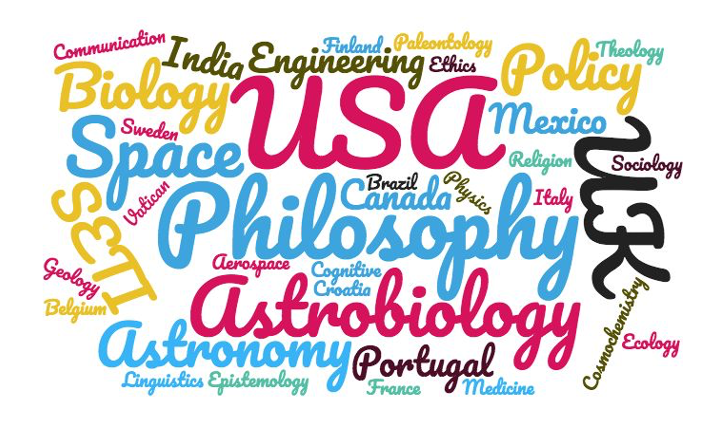
From Monologue to Dialogue
Loading...
Start Date
15-12-2020 9:00 AM
End Date
15-12-2020 9:20 AM
Description
Let us suppose we are serious about communicating with potential extraterrestrial intelligence (ETI). Our messages to extraterrestrial intelligence (METI) and deliberations on future messages have concentrated on proclaiming our existence and describing ourselves. What word would you use to describe someone at a social gathering who talks only about themselves and how interesting they are? Admittedly, we babble out to the stars in order to establish a shared method of communication. In addition, our exclamatory and declarative interstellar messages arguably contain implied requests to receive replies with similar information. Nevertheless, it would be sensible to intersperse clear questions in our messages for ETI as we introduce ourselves to the galaxy. After all, the act of question-asking is intrinsic to human society and to human intelligence. This talk will describe the extant instances of question-asking in METI practice and theory: the Voyager Record artifact, Cosmic Call transmissions, and Freudenthal’s Lincos proposal, supplemented by examples from speculative fiction. In contrast to these sparse METI cases, we will review the importance of questions in diverse human activities such as language acquisition, foreign travel, humor, dating, and philosophizing. We will observe that question-asking is pivotal in moving from being unknown to becoming friends, reflecting similar aspirations in METI. After reviewing classic examples of questions from sources such as Plato, the Bible, and Wittgenstein, outlining the various linguistic functions of the interrogative, and admitting some of the dangers inherent in asking questions, in the spirit of the topic we will ask what questions we could include within our interstellar messages. Beginning this practice will clarify our intentions for constructing such messages, as well as inform the debate of whether we should be engaged in METI at all.
Recommended Citation
Alba, William, "From Monologue to Dialogue" (2020). Society for Social and Conceptual Issues in Astrobiology (SSoCIA) Conference. 13.
https://egrove.olemiss.edu/ssocia/2020/schedule/13
From Monologue to Dialogue
Let us suppose we are serious about communicating with potential extraterrestrial intelligence (ETI). Our messages to extraterrestrial intelligence (METI) and deliberations on future messages have concentrated on proclaiming our existence and describing ourselves. What word would you use to describe someone at a social gathering who talks only about themselves and how interesting they are? Admittedly, we babble out to the stars in order to establish a shared method of communication. In addition, our exclamatory and declarative interstellar messages arguably contain implied requests to receive replies with similar information. Nevertheless, it would be sensible to intersperse clear questions in our messages for ETI as we introduce ourselves to the galaxy. After all, the act of question-asking is intrinsic to human society and to human intelligence. This talk will describe the extant instances of question-asking in METI practice and theory: the Voyager Record artifact, Cosmic Call transmissions, and Freudenthal’s Lincos proposal, supplemented by examples from speculative fiction. In contrast to these sparse METI cases, we will review the importance of questions in diverse human activities such as language acquisition, foreign travel, humor, dating, and philosophizing. We will observe that question-asking is pivotal in moving from being unknown to becoming friends, reflecting similar aspirations in METI. After reviewing classic examples of questions from sources such as Plato, the Bible, and Wittgenstein, outlining the various linguistic functions of the interrogative, and admitting some of the dangers inherent in asking questions, in the spirit of the topic we will ask what questions we could include within our interstellar messages. Beginning this practice will clarify our intentions for constructing such messages, as well as inform the debate of whether we should be engaged in METI at all.

